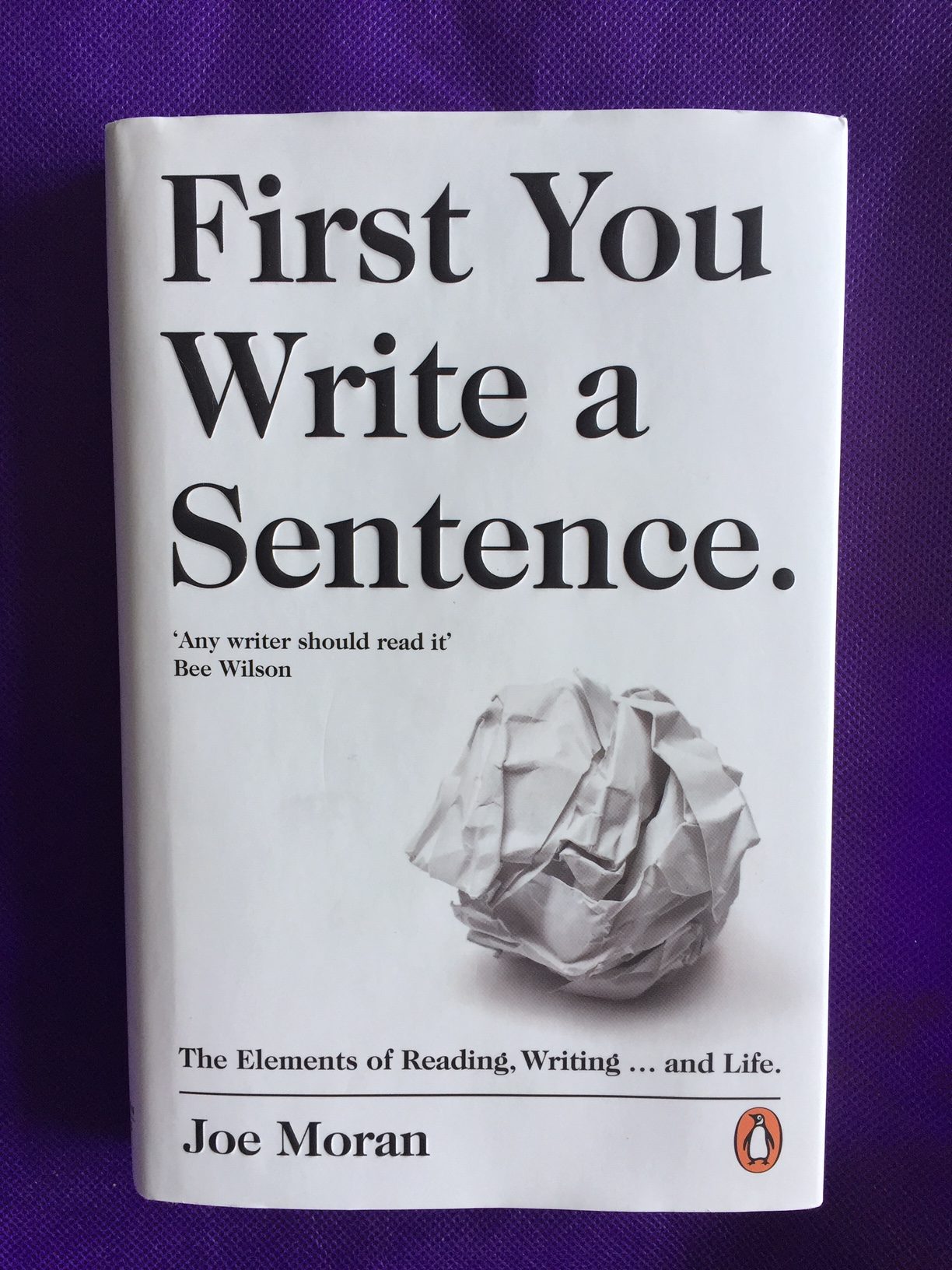Book Review: First You Write A Sentence by Joe Moran

‘First You Write a Sentence’ by Joe Moran is a mixture of advice, mostly good, and observation, which I found less interesting, probably because, as a writer, I am always looking for the former.
Advice is of course just that: you can take or ignore it according to the context and circumstances.
Useful advice includes:
• Focus on using verbs, rather than nouns
• Avoid the verb ‘to be’ where possible, as it is linked with the passive
• Avoid ‘-ivity’ words
• A list of specific words and terms to avoid (life experience, relationship, aspect, area, potential, structure, lifestyle)
• Adding adjectives/prepositions to the verb ‘is’ means wasted words
‘is applicable to’ – use ‘applies to’
‘is indicative of’ – use ‘indicates’
‘is able to’ – use ‘can’
• If you use nominalisation, take care to avoid following with a weak verb or construction such as ‘to be’ (compare ‘Rutherford split the atom’ with ‘Rutherford’s splitting of the atom’
• Stick to transitive verbs with a direct object.
• Avoiding too many ‘-ing’ verbs. It may be unclear whether they are verbs or gerunds.
• Use past participles without ‘to be’. Instead of ‘the toast was burnt and ruined’ use ‘the toast burnt and breakfast ruined, we left the house.
• Use as many short words as possible, the older the better.
• Avoid ‘-tate’ and ‘shun’ words where possible.
• Cut the number of syllables used. Examples:
Unnecessary – substitute needless
Begin – start
Eyesight – sight
Individual – person
Sufficient – enough
Ascertain – learn
Structure – shape
Allow – let
The book includes some interesting comments on how language and sentence structure has changed over the centuries, including reference to Shakespeare’s use of strong verbs.
I would have liked to have seen more examples and quotations included, but found it a worthwhile read. A useful guide and checklist for succinct writing.